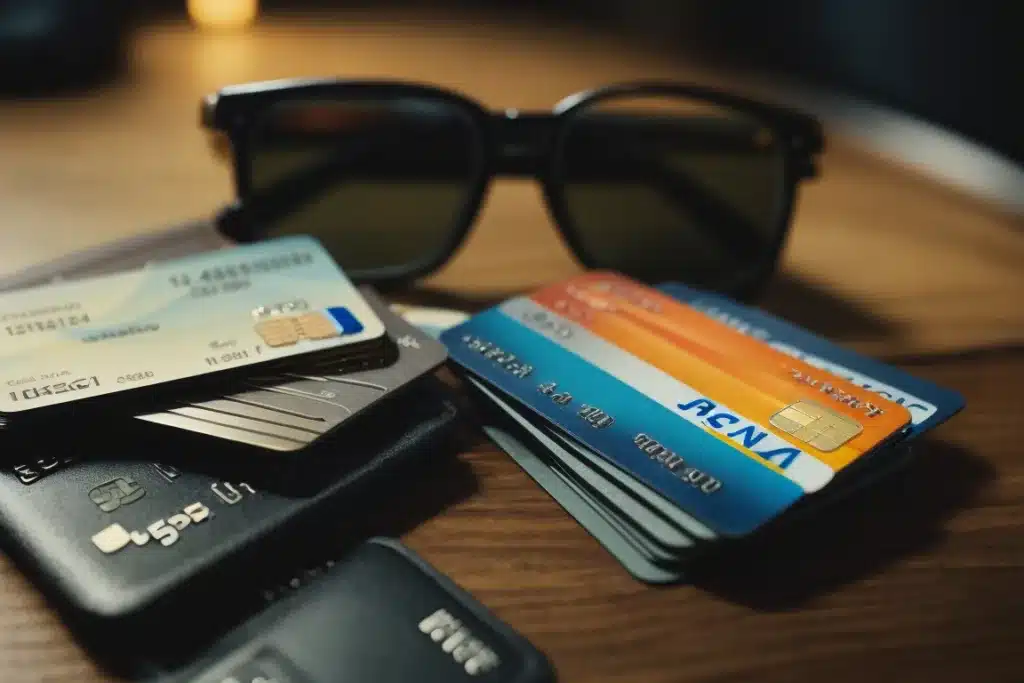Credit Cards and Purchase Protection
Your Credit Card’s Best-Kept Secret: Inbuilt Purchase Protection
If you use a credit card to purchase, or even part-purchase, an item, you may well be protected by the credit card company; this is because you receive additional protection in case any issues arise, unlike when paying with cash or a cheque.
Protection thanks to Section 75
When you use your credit card to make a purchase, your credit card company shares the responsibility with the retailer. If you fail to receive satisfaction from the retailer, you have the right to claim your credit card company if there’s a problem with the product or service you’ve paid for. You don’t have to wait for a resolution from the retailer before contacting your credit card provider – you can take action simultaneously.
Section 75 is especially helpful when the retailer has gone out of business or isn’t responding to your attempts to resolve the issue.
The following article will explain the protection and peace of mind that Section 75 provides.
If you pay only part of the purchase price with a credit card
Regarding liability, there are certain conditions that both the card company and the retailer or trader must meet. To be eligible for a claim under Section 75 of the Consumer Credit Act, the item or service you purchased must have cost between £100 and £30,000.
It’s worth noting that you don’t have to pay the total amount on your credit card to be protected – even if you only made a partial payment, such as a deposit, you are still covered by the card company.
The critical factor is the value of the goods or services you buy, not the amount paid with your card. For instance, let’s say you paid a £500 deposit with your credit card for a new car and then paid the remaining £10,000 by cheque. If the car dealer goes out of business and you don’t receive your car, you would be covered for the entire £10,500.
It’s important to know that your rights against your credit card company are the same as those against the retailer or trader. Therefore, if you need to make a claim for a repair, you should approach your credit card provider for assistance. However, if you’re already claiming for a repair or a replacement item, you cannot also request a refund.

Debit card purchases
Section 75 of the Consumer Credit Act only applies to credit cards, not debit or charge cards. However, another option you can explore to get your money back potentially is the chargeback scheme.
Unlike Section 75, the chargeback scheme is not a legal requirement but a voluntary program operated by Visa and MasterCard. It covers Maestro, Visa, and Visa Electron debit cards. The Financial Ombudsman Service considers chargeback to be good banking practice.
If you wish to claim the chargeback scheme, make sure to do so within 120 days of your purchase. Contact your bank for more information on how to apply for this scheme.
If you use a credit card to buy something with PayPal
Some credit card transactions involve two different companies. One of the most common instances is when you use PayPal to pay for something; the company that handles your payment may differ from the one that provides the goods or services.
Although this may create complications, there is good news: if you use your credit card through PayPal and the funds go directly to the seller, you can still take advantage of Section 75 protection. If the company you’re buying from has a ‘Commercial Entity Agreement’ with PayPal, you can claim for any misrepresentation or breach of contract.
And that’s not all. PayPal has its buyer protection scheme called PayPal Buyer Protection. So, if you have any issues with your purchase, it’s worth checking if this scheme covers you. With these safeguards, you can shop online confidently and ensure you’re protected in case of any problems.
Items under £100 – use chargeback
You may be eligible for chargeback if your purchased item or service was under £100. While it is not a legally mandated protection like Section 75, chargeback is a part of a series of guidelines known as the Scheme Rules that participating banks follow.
Chargeback applies to all debit cards, with some variations between the Visa, Maestro, and American Express networks.
If you have not received prompt or full compensation – The Financial Ombudsman
There isn’t a specific time frame when resolving a chargeback or Section 75 claim with your card provider. However, if you’re dissatisfied with the outcome or the length of time it’s taking, you have the option to complain to your provider. They will then have eight weeks to address your complaint.
If your credit card company denies your claim and refuses to make a payment, you can request a letter of deadlock. This letter allows you to escalate your dispute to the Financial Ombudsman Service (FOS).
If more than eight weeks have passed since you filed your claim with your credit card provider, you can go directly to the FOS without needing a letter of deadlock.
Furthermore, you can approach the FOS before the eight-week mark if your provider has consented.
The ombudsman addresses your grievances when you believe you haven’t been treated fairly and reasonably. This covers situations where a company has failed to adhere to industry standards, regulatory guidelines, or legal obligations.
While less formal than a court proceeding, the ombudsman can require businesses to provide compensation if they find it in your favour.

Start Your Claim
It is easy to start your claim with us. Complete the form on our website for a no-obligation discussion about your situation, and find out if you are eligible to claim.
It is useful to have key information to hand when you call, such as dates, but we can talk you through everything that is needed. If you have a valid claim and want to go ahead, we can start your claim immediately.
The claims process is very straightforward. Simply fill in our form and ClaimsRefund.com will contact you to discuss. Get in touch today!